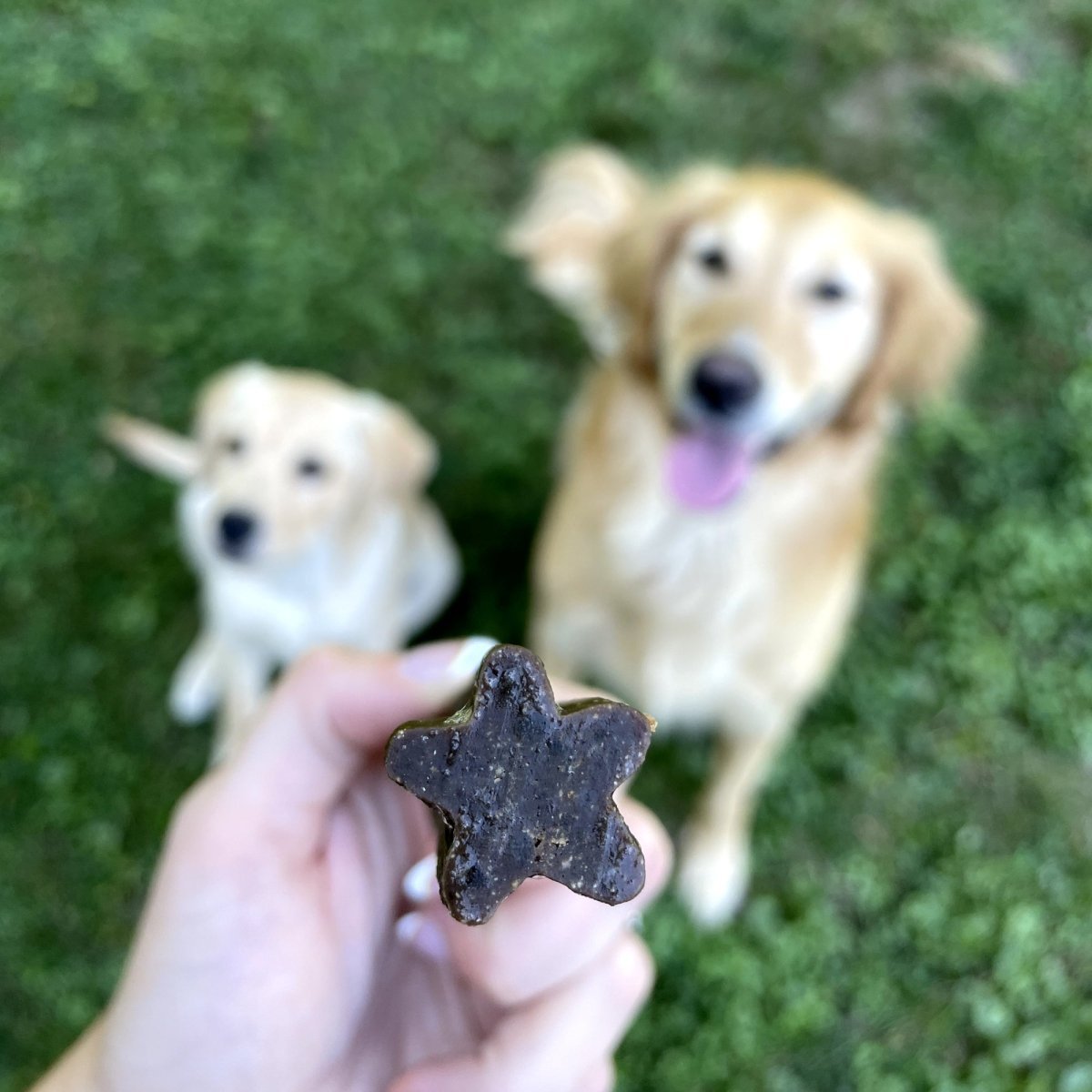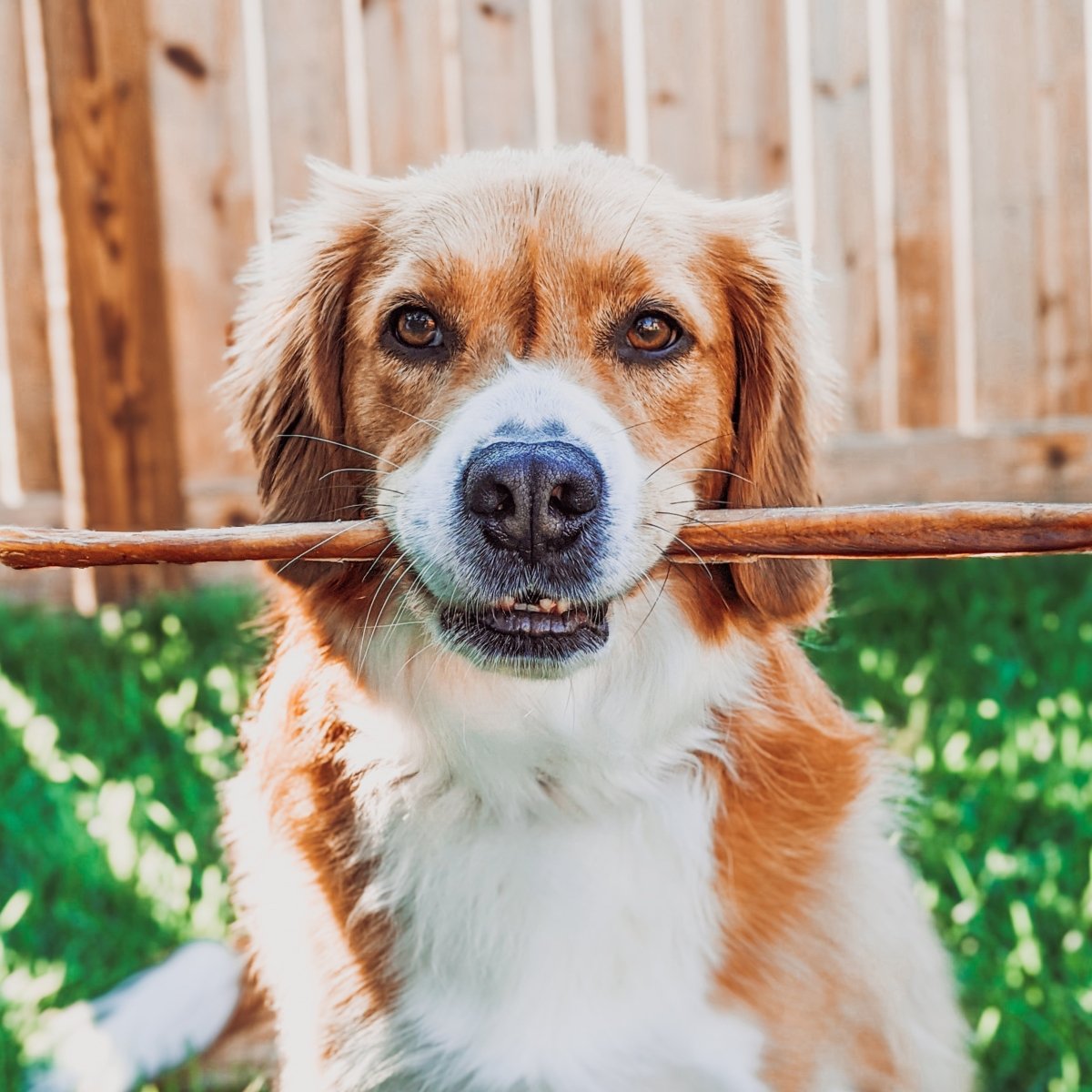
You may have been here before. The sudden realization that you’re not alone, the attempt to run, followed by the release of foul-smelling spray from the skunk you’ve stumbled upon. Humans usually know not to bother a skunk, but our pups may have to learn from experience. If your dog has been sprayed, have no fear. Here’s how to get rid of the skunk smell on dogs naturally.
Step 1: Stay calm
This may be obvious, but skunk spray smells bad. You’ll know immediately when it happens, but your dog might be more confused. The spray can also burn if it gets in the eyes. This means that your dog is likely panicked in the skunk-spraying aftermath. Set the tone for clean up by staying calm and even opting for treats if it will help your dog relax.
Step 2: Check the eyes
If your dog’s eyes are red or teary, some spray may have gotten into them. If this is the case for your pup, rinse his eyes with saline solution (human grade is fine) or water in a turkey baster. Time is of the essence when removing skunk smell, but it’s important that the spray isn’t burning your pup’s eyes as you clean his fur.
Step 3: Don’t bring your pup inside
If not removed properly, the familiar smell of skunk spray can linger for up to a year. Further complicating the situation is the fact that skunk spray is not water soluble – not even with soap. If you bring your pup inside, the smell is likely to stink up your home. Keep your pooch outside, where you’ll administer the anti-stink treatment.
Step 4: Prepare the solution
We’ve all heard that tomato juice is the go-to solution for removing skunk spray stench. But, as it turns out, tomato juice does little to remove odor. It may disguise the smell of skunk spray, but only temporarily. There is, however, one universally-accepted solution. The ingredients are more natural than most store-bought options and you probably already have them in your cupboard. Here’s what you need to clean a medium-sized pup:
Mix these ingredients together, disposing of any extra solution when you’re finished. Believe it or not, the solution could potentially explode if stored in a container for extended periods of time. (A science lesson and a pet cleaning solution, all in one!)
Step 5: Apply to your dog
Avoiding the eyes, apply the solution right to your dog’s fur. Don’t wet your dog beforehand, as doing so will dilute the solution. Rinse after 5-7 minutes and follow up with shampoo. Note: The hydrogen peroxide may have a slight bleaching effect on darker dog fur, but this risk can be reduced by decreasing how long the solution sits or by directly replacing the hydrogen peroxide with white vinegar.
Step 6: Assess your pup
Now that you’ve rinsed the skunk spray from your dog in a timely manner, check in again with how your pup is doing. In the hours and days after the event, does your dog seem ill? Some dogs have strong allergic reactions to skunk spray. If your pet is vomiting or you notice their urine or feces is discolored, take them to the vet immediately. Even if they have no allergic reaction, your dog been through a stressful and likely confusing affair. Tell them you love them (despite the hassle) by giving them an odor-free bully stick or their other favorite snack.
Comments will be approved before showing up.

Dental chews keep plaque in check and gums strong. Read here to learn about nature's toothbrush!

Single-ingredient dog chews and treats are crafted using only one whole food source!

Check out our guide on different types of chews to help you decide on the best chew for your dog!